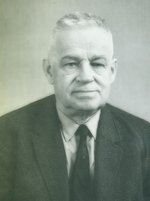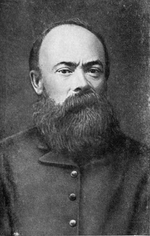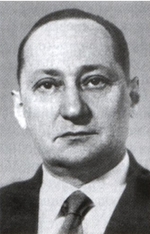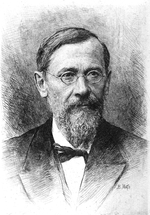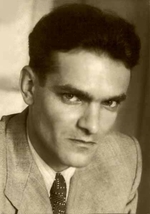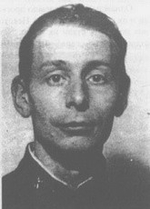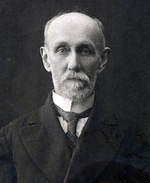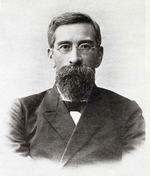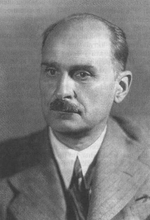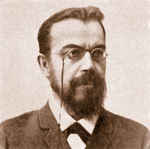Articles
Kislyakov Nickolay (1901–1973)
Kislyakov Nickolay (1901–1973) – ethnographer, historian of culture of the peoples of Near and Middle East, Central Asia.
In 1932, he graduated from the Geographical Faculty of the Leningrad Historical and Linguistical Institute. Since 1934, he worked at the Institute of Ethnography of the Ac. of Sc. of the U.S.S.R. In 1935, he defended his Candidate thesis ‘Remnants of the Primordial Communism at Mountainous Tajik of Vakhiobolo’; in 1952 – his Doctor thesis ‘Family and Marriage at Tajik’.
In 1941, he became Director of the Museum of the Tajik Branch of the Ac. of Sc. of the U.S.S.R. in Dushanbe. In 1943-1945, he worked at the Soviet Embassy in Iran.
Read More
Klementz Dmitry (1848–1914)
Klementz Dmitry (1848–1914) – Revolutionary Narodnik, ethnographer, geographer, archeologist.
In 1867-1871, he studied at the Physical and Mathematical Faculty at the Kazan’ University, later – at the St. Petersburg University. Since 1871, he was a member of a group of Narodniks at the Medical-Surgical Academy (one of the leaders was N. V. Chaikovsky), which initiated ‘going to the people’. In 1873, he went underground; in 1874-1878, he was in emigration in Europe. Member of ‘Zemlya i volya’ Group (Earth and Freedom); Member of the Editorial Board of the ‘Zemlya i volya’ Magazine (1878-1879). In 1879, he was arrested and in 1881sent to Siberia, to Minussinsk.
Read More
Klibanov Aleksander (1910–1994)
Klibanov Aleksander (1910–1994) – historian, specialist in religious and social movements in Russia, source critic.
In 1932, he graduated from the Cycle of the History of Religion, at the Faculty of Social Studies of the Leningrad State University. After it, he became Researcher of the Leningrad Antireligious Museum (in the space of the St Isaak Cathedral). He was Head of the Department of Propaganda of the Leningrad Branch of the League of Militant Atheists, Chief Editor and Leningrad Representative of the State Antireligious Publisjing House (1932-1934). He also taught at the Krupskaya Communist Political-Enlightening Institute (1934-1935).
In 1935, he defended his Candidate thesis in History ‘The Mennonites Colonization in the South of Russia in the Eighteenth – Nineteenth Centuries’ at the Ac. of Sc.
Read More
Kliuchevsky Vasily (1841–1911)
Kliuchevsky Vasily (1841–1911) – historian, specialist in Russian history.
He was born in a family of a village priest; graduated from the Historical and Philological Faculty of the Moscow University in 1865. His Candidate thesis was ‘Tales of Foreigners on the Moscovite State’; in 1871, he defended his Master thesis ‘Old Russian Lives of Saints as Historical Source’; in 1882 – his Doctor thesis ‘The Boyar Duma of Old Rus’. Since 1879, he made lectures in Russian history at the Moscow University – after the death of S. M. Soloviev; Professor since 1882. Besides, he made lectures at the Moscow Spiritual Academy, and at the Moscow Gerie Female Courses.
Read More
Knorozov Yury (1922‒1999)
Knorozov Yury (1922‒1999) – Doctor in History, world-known ethnographer, linguist, translator; chevalier of the Order of the Aztec Eagle (Mexico), and the Big Gold Medal of the President of Guatemala, an honourable member of the Madrid Society for Mayan Studies, and the National Geographic Society of the U.S.A.
In 1948, after the graduation from the Historical Faculty of the Moscow State University, he worked in Leningrad, at the Museum of Ethnography of the Peoples of the U.S.S.R.; in 1953, he transferred to the Museum of Anthropology and Ethnography named after Peter the Great (Kunstkamera).
The world glory of Knorozov, as one of the leading specialists in the field of traditional culture of the peoples of the Central America, was connected with his achievements in deciphering the writing system of Maya.
Read More
Kochetov Aleksey (1910–2004)
Kochetov Aleksey (1910–2004) – specialist in Buddhism, museologist, teacher.
He graduated from the Leningrad Historical and Philological Institute, he studied at the post-graduate courses of the Institute of Philosophy of the Ac. of Sc. of the U.S.S.R. under the supervision of G. P. Frantsov and F. I. Scherbatsky. In 1932-1940, he worked in Buryatia: Researcher of the Institute of Culture, Deputy Director on Research of the Antireligious Museum in Ulan-Ude. In 1962, he defended his Candidate thesis ‘Problems of Criticism of Buddhist Ideology’; in 1974 – his Doctor thesis ‘Philosophical and Sociological Aspects of the Criticism of Lamaism’. In his works K. kept traditions of the Russian school of Buddhist studies and used Marxist methodology typical for Soviet works.
Read More
Kokovtsov Pavel (1861–1942)
Kokovtsov Pavel (1861–1942) – specialist in Hebraic studies and Semitology, the founder of the St. Petersburg school of Semitology.
In 1880-1884, he studied at the Faculty of Oriental languages, at the Hebrew-Syrian-Arabic Department, under the supervision on D. A. Khvolson and V. R. Rosen. Besides, he visited courses of the Arabic-Persian-Turkish-Tartar Department, and studied Sanskrit at S. F. Oldenburg. Later, that Turk-oriented studying happened to be useful for him in the course of analyzing Syrian-Turkish inscriptions from Zhetysu (Semirechie), and his knowledge in Sanskrit came in handy at considerations on the theory by Joseph Halevy on the origin of the Indian writing.
The independent research work of K. started with his graduation essay (it brought him the golden medal): ‘The Chaldean translation of the Book of Proverbs of Solomon, and its relation to the Syrian translation of the same book, found in the Peshitta’.
Read More
Kondakov Nikodim (1844–1925)
Kondakov Nikodim (1844–1925) – historian of Christian art and Byzantine art, archeologist, creator of the iconographic research method and the new field of Art Studies: the history of Byzantine art.
In 1861, he enrolled at the Historical and Philological Faculty of the Moscow University, where he visited lectures of S. M. Soloviev, S. V. Eshevsky, and F. I. Buslaev. In 1873, he defended his Master thesis ‘The Harpy Monuments from Minor Asia and Symbolism of Greek Art’; in 1876 – his Doctor thesis ‘The History of Byzantine Art and Iconography on the Base of Miniatures of Greek Manuscripts’. Since 1869, he taught at the Novorossisky University in Odessa; in 1888, he was invited to the St. Petersburg University, at the Chair of Theory and History of Art. In 1888-1893, he was also Senior Curator at the Imperial Hermitage; since 1888 – member of the Imperial Archeological Commission.
Read More
Konrad Nickolay (1891–1970)
Konrad Nickolay (1891–1970) – Russian orientalist, specialist in Lapanese and Chinese studies, ethnographer, specialist in cultural studies, philosopher of history.
In 1912, he graduated from the Oriental Faculty of the St. Petersburg University with the specialization in Chinese and Japanese languages. He was trained in Japan in 1914-1917. In 1922-1938, he was Head of the Chair of Japanese language at the Leningrad Institute of Living Oriental Languages, taught at the Chair of Japanese language at the Petrograd/Leningrad University, worked for the ‘Vsemirnaya literatura’ Publishing House (World Literature); in 1930-1938, he was Head of the Japanese Cabinet of the Institute of Oriental Studies of the Ac. of Sc. of the U.S.S.R.
Read More
Korelin Mikhail (1855–1899)
Korelin Mikhail (1855–1899) – historian, medievalist.
He graduated from the Historical and Philological Faculty of the Moscow University; where his supervisor was V. I. Gerie. Professor of the Moscow University (since 1892); specialist in the Italian Renaissance. In 1892, he defended his Master thesis ‘The Early Italian Humanism and Its Historiography’ (publ. in 1914), but got the Doctor degree for it at once. In that work he introduced a large amount of new sources; he studied the humanistic character of the Renaissance. He argued that the Humanism was not a byproduct of a ‘restoration’ of classical culture, but he did not connect it with social-economical changes in the society – he interpreted it as an ideological movement only.
Read More
Showing 121-130 of 351 items.

